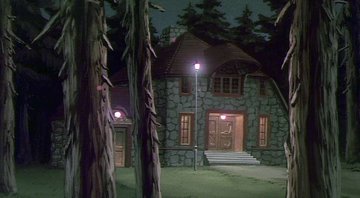Difference between revisions of "Xanadu"
Supermorff (talk | contribs) (rm cat. the poem is called ''Kubla Khan'', lacking the "i") |
Supermorff (talk | contribs) (CIT template) |
||
| Line 6: | Line 6: | ||
The name "Xanadu" was most likely inspired from a combination of two sources: the site of Kublai Khan's "stately pleasure-dome" in Samuel Taylor Coleridge's ''Kubla Khan'', and Charles Foster Kane's palatial residence in the movie ''Citizen Kane'' - no doubt, assisted also by the strong similarity to Xanatos' own name. | The name "Xanadu" was most likely inspired from a combination of two sources: the site of Kublai Khan's "stately pleasure-dome" in Samuel Taylor Coleridge's ''Kubla Khan'', and Charles Foster Kane's palatial residence in the movie ''Citizen Kane'' - no doubt, assisted also by the strong similarity to Xanatos' own name. | ||
| − | + | {{CIT|Coincidentally, [[Greg Weisman]] has said there is presently a gargoyle clan living in the original [[Xanadu, China|Xanadu]] in China.}} | |
[[Category:Canon places]] | [[Category:Canon places]] | ||
Revision as of 09:03, 5 September 2007
Xanadu is Xanatos' upstate retreat. Jackal and Hyena made an unsuccessful effort to assassinate him here, which was foiled by the gargoyles. ("Her Brother's Keeper")
Real World Background
The name "Xanadu" was most likely inspired from a combination of two sources: the site of Kublai Khan's "stately pleasure-dome" in Samuel Taylor Coleridge's Kubla Khan, and Charles Foster Kane's palatial residence in the movie Citizen Kane - no doubt, assisted also by the strong similarity to Xanatos' own name.
Coincidentally, Greg Weisman has said there is presently a gargoyle clan living in the original Xanadu in China.
